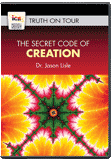To despise doctrine is to despise the Word of God. - R.C. Sproul
Paul had hoped that the Macedonian Christians would give money to help the saints in Jerusalem who were in such dire poverty and distress. But they did far more than Paul had hoped. They not only gave their money; they gave themselves first. If a man gives himself, then, of course, his pocketbook is included. You see, the real thing that pleases God always in this matter of giving is that people shall give themselves, their love, their devotion, their trust, their service, and all they have. After one has given himself thoroughly to Christ, out and out, lock, stock, and barrel, then the giving question is pretty easily settled. All one needs to know, then, is simply what will please God.
May God make those who read into Macedonian Christians! May we give ourselves afresh to the Lord Jesus Christ. - John R. Rice
Almost always when a person insists that he believes tithing was only for Old Testament saints, was ceremonial law and is not required of Christians today, it is not that he has a better way of giving than the tithe, it is not that he gives more, it is not that he loves God more, or has a more blessed way. People who do not believe in tithing almost always believe in giving
less than the tithe, not more! Arguments against tithing are usually from people who give less than a tithe and who, with covetous hearts, would withhold from God the larger gifts which the tithe and offering basis would require. - J. R. Rice
Do not misunderstand me here: the tithe is not a part of the plan of salvation. People are saved by grace alone. They are not saved by giving tithes nor by any other righteous deeds. People are not saved by the Ten Commandments, are not saved by church rites and ceremonies, not saved by baptism. However, the moral commandments are proper standards for Christians. Christians should do right, and one matter of righteousness still expected of Christians is that, from a loving heart, we should bring to God not less than the tithe. This is a matter of Christian duty, not part of the plan of salvation. - Rice
More than once people have asked me to pray that oil would be discovered on their land, and then they said, "If oil is discovered on my land, I promise God I will give one-tenth to Him." To one such man I said, "You promise God that if He will give it to you, you will spend nine-tenths of the income on yourself and you offer Him only one-tenth. I cannot see that that is any spiritual incentive to me to pray, nor any incentive to God to grant your request. It is obviously nine-tenths selfish." - Rice
A secretary of a British missionary society called on a Calcutta merchant and asked him to help in the work. He drew a check for $250 and handed it to the visitor. At that moment a cablegram was brought in. the merchant read it and looked troubled. "This cablegram," said he, "tells me that one of my ships has been wrecked and the cargo lost. It makes a very great difference in my affairs. I shall write you another check." The secretary said he understood perfectly and handed back the check for $250. The check book was still open and the merchant wrote another check and handed it to him. He read it with amazement. It was drawn for $1000.
"Haven't you made a mistake?" the secretary asked.
"No," said the merchant, "I haven't made a mistake." Then, with tears in his eyes, he said, "That cablegram was a message from my Father in Heaven. It read, 'Lay not up for yourselves treasures upon earth!' "
The honest reaction of the consecrated heart in such a case was to give an offering that would testify to God and men that God's will was good, and that he would not set his heart upon money. - Rice
The fundamental truth back of all Christian giving is that all authority in the world belongs to Jesus Christ; that to every Christian Jesus Christ is absolute Lord. His will is law. The Christian belongs to Jesus Christ lock, stock, and barrel; hook, line, and sinker! The Christian ought to say, "For me to live is Christ." The Christian ought to count himself crucified with Christ and raised to live in newness of life with Him. The Christian not only looks to Jesus Christ alone for salvation, but looks to Him for instructions. And every Christian should know that he must personally give an account to Jesus Christ.
When a Christian gives, he ought to give as if he placed his gift in the nail-scarred hand of Jesus Christ. To withhold anything from Christ is rebellion and sin. To let anyone come between the Christian and Christ and take part of the authority which belongs to Christ is sin. - Rice
[all the quotes by John R. Rice on this post were taken from the book-
All About Christian Giving, published by the Sword of the Lord. Like all of John Rice's book- it is highly recommend by yours truly.]

 The New Answers Book 3
The New Answers Book 3




 Buddy's Amazing Adventures 3–DVD Combo
Buddy's Amazing Adventures 3–DVD Combo The Secret Code of Creation
The Secret Code of Creation The New Answers Book Boxed Set
The New Answers Book Boxed Set 
